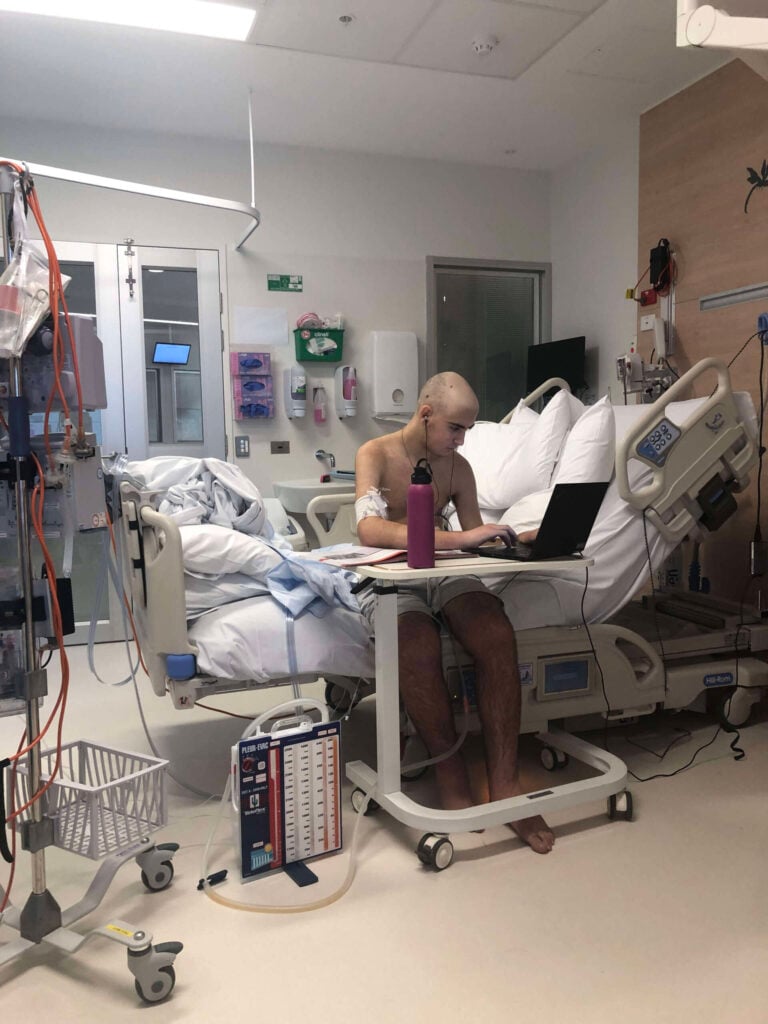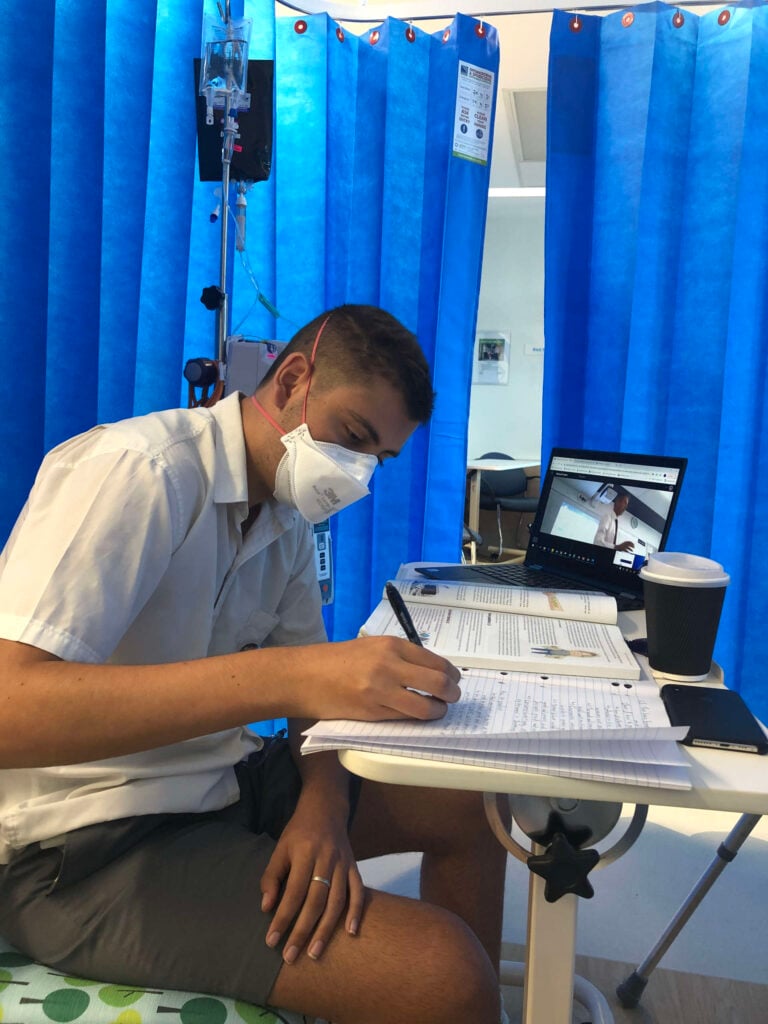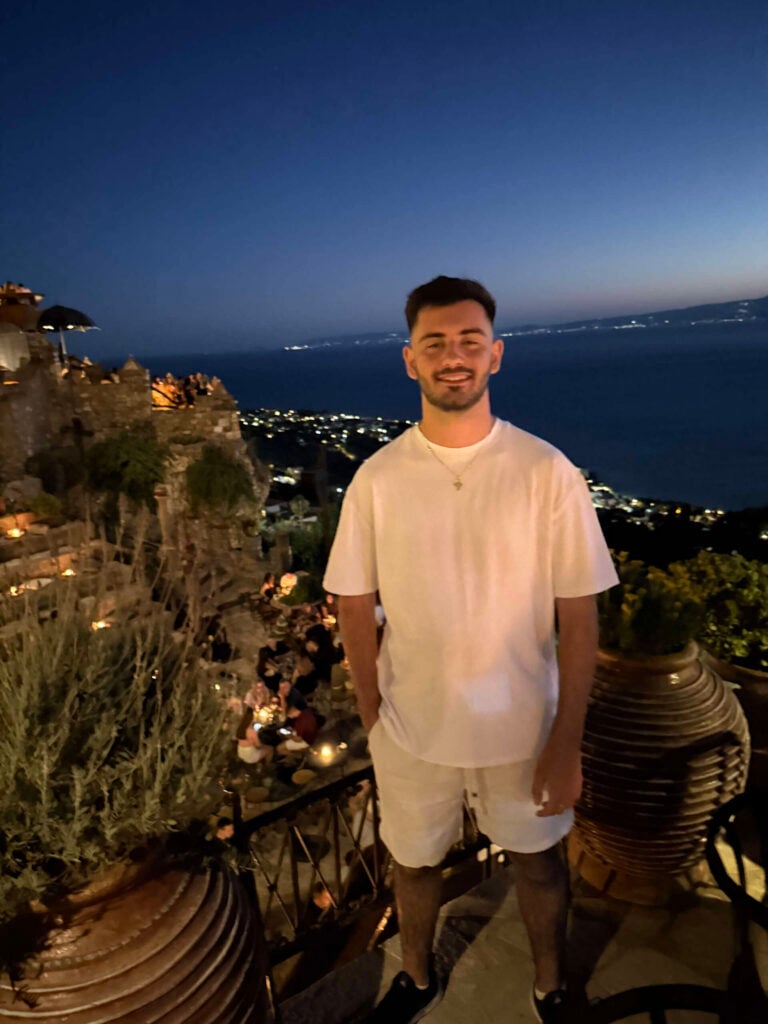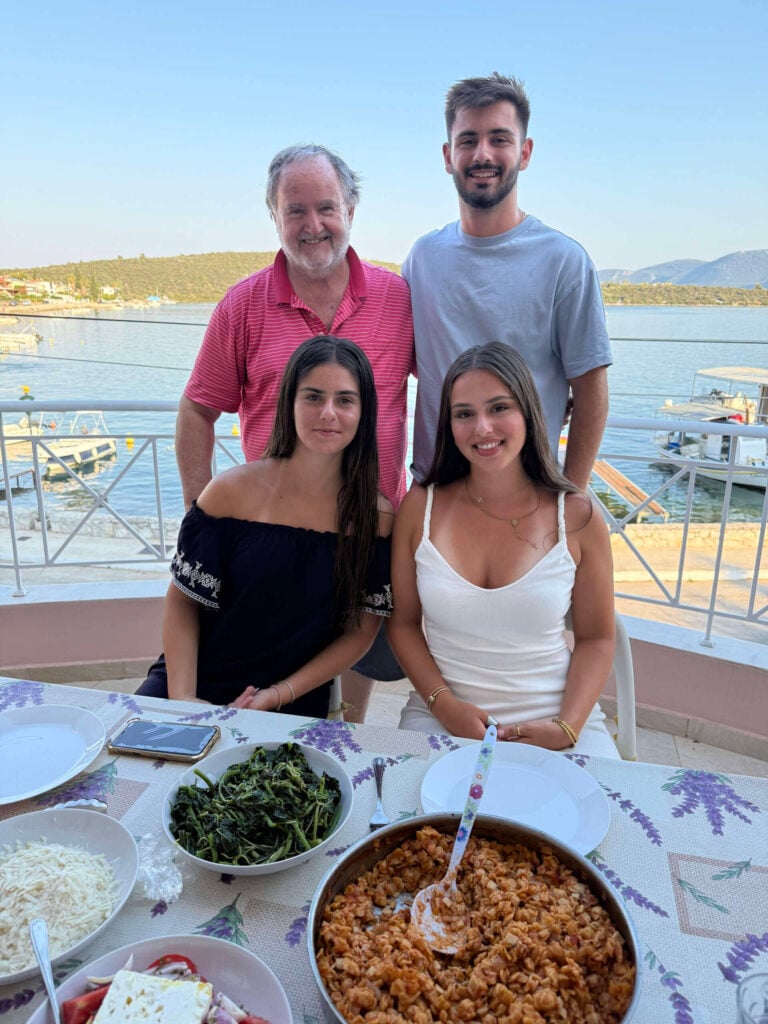September marks Blood Cancer Awareness Month, a reminder that leukaemias, lymphomas, and myeloma affect thousands of families every year. Outcomes vary depending on subtype and age, but behind every diagnosis lies a personal story. For 19-year-old James (Dimitri) Batsis, who was just 16 when he was diagnosed with lymphoma, the journey has been gruelling but transformative. He shares his experience to offer hope, break stigma, and highlight the role of family, faith, and community.
The diagnosis
It began as an ordinary Saturday in June 2021. Sixteen-year-old James felt a sharp pain in his back and chest, prompting his mother to rush him to Monash Health’s Emergency Department.
“The first doctor only noticed some inflammation in my neck,” James recalls.
“Then a radiologist came in with the ultrasound. As soon as he scanned my chest, the room went silent. He said, ‘There appears to be a mass sitting on your chest.’ That was the moment I realised something was seriously wrong.”
By Sunday, surgeons had inserted a vascular access device into his arm. On Monday, steroid treatment began. Further tests confirmed the diagnosis: lymphoma. James held tightly onto his cross, bracing for the fight ahead.

Treatment and daily life
James’s world collapsed almost overnight. He lost 16 kilos in a month, his heart raced at 180 beats per minute while resting, and for three months he could not leave hospital. At home, he relied on a wheelchair.
“My daily life was completely annihilated,” he says.
But his education continued. His mother, who never left his side, urged him to keep learning. Teachers adapted assignments, classmates stayed in touch, and James attended classes online from his hospital bed. He completed Year 11 remotely, and his school arranged for him to spread Year 12 over two years.
The first year was a struggle.
“I thought law school was out of reach,” James admits. But once chemotherapy ended, strength and clarity slowly returned. Six months later, side effects eased, marks improved, and his dream came back into view. Today, he is a law student at Monash University.

Support systems
Beyond medicine, it was support that sustained him. His mother never left his hospital bedside. Grandparents managed the household. Friends checked in constantly.
Community care mattered too. “Father George and Kosta, the cantor, were amazing,” James says.
“Father George even brought me a souvlaki while I was being treated.”
Asked whether there was anything missing, James is unequivocal: “No. I felt supported by the people around me and by the medical system.”
Stigma and resilience
James feels attitudes towards cancer have changed. “Compared with the past, cancer is less of a taboo now. Some people still choose to keep it private to feel normal, but I never felt stigmatised.”
He credits his Greek upbringing for resilience. “Finding κέφι, that spark of joy, kept me going. I tuned into lessons, listened to Greek music, and watched church services online. It gave me strength.”
He hopes the Greek Orthodox Archdiocese of Australia will encourage parishes to livestream Sunday liturgies.
“People who are sick or immunocompromised need it most. They can’t always get to church, but they need God more than ever.”

James’s message
His advice is simple yet profound.
“To anyone newly diagnosed: breathe first. You don’t have to carry everything. Let the doctors worry about clinical results and treatment. Focus on small daily joys, even swaying to Greek music can distract from the side effects.
“To our community: be present without pressure. Offer support, company, and simple messages with no expectation of reply. That sense of normalcy brings hope.”
James wants to see better supports for patients in the future, from flexible online learning during treatment, to in-home physiotherapy, to tailored nutrition guidance. He also notes the challenges Greek patients would face in Greece, where accessibility and public services are not guaranteed.
“My Room Children’s Cancer Charity funded my in-home physiotherapy,” James says.
“They got me back on my feet.”
Moving forward
Today, James plays bouzouki again, studies law, and dreams of contributing to the world with the same resilience that carried him through cancer.
“I wouldn’t wish the journey on anyone,” he says, “but I can say: you can get through it.”
